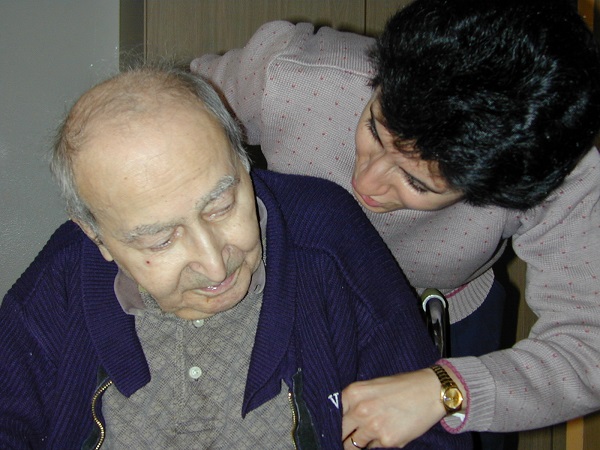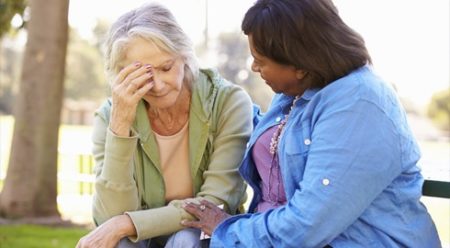While The Caregiver’s Voice is more likely to focus on an article about caregivers and guilt, we recently collaborated with Homewatch CareGivers on a piece about loved ones’ feelings of guilt. Care recipient guilt is infrequently covered; yet, it is an equally important perspective among caring partners.
At age 37, I was shocked to hear my father refuse my help after I flew from California to Wisconsin. My mother died three-and-a-half years earlier and following several incidents that involved law enforcement, the County assigned him a case worker.
“Why are you spending time with me?” he asked.
“I’m your daughter. Besides, we’re two Leos, and we have to stick together,” I reminded him. It was something we often said to highlight our special bond, after I was born on his August birthday.
“Nah, forget about me. You’re still young and have to finish school,” he said, as he struggled to remember with dementia.
I chuckled, “I’ve been out of school for 14 years.”
“Really? Congratulations on finishing. School is important,” he said proudly.
“I’m working, now,” I added.
“Even more reason to forget about me and focus on your work,” came his parental advice. “I’m old. We’re like animals. We crawl until we stop and then we die.”
Imagine hearing such a remark from your parent.
Many elders feel the same way. They don’t want to be a burden to their children.
Guilt so severe, my father wanted to die.
Months later, while living with my husband and me in California, my father quietly asked if I could help him die. He felt useless because he was no longer contributing. Instead, I found ways to make him feel useful doing tasks around the house. He never raised the topic of dying after that. As dementia and later, Alzheimer’s, took away pieces of his world, he grew calmly content about life in general.
How do adult children care for their parents without causing them to feel guilty?
Helping a Care Receiver Get Over Feeling Guilty
[1/9/2024 TCV Update: Homewatch Caregivers URL no longer available.] addresses how to help independent resourceful elders who don’t want to be a burden. Considering it’s hard enough for them to receive help let alone ask for it, this article offers four caregiver tips to help elder loved ones not feel so guilty about needing help.










The article about parents feeling guilty when their adult children offer them care and comfort triggered a sense of grateful-ness in me. I just returned from a visit with my 87 year old mother, and she does not allow anyone in her home. However, I’m fortunate to have a team of men who provide her with essential care, and are watching for signs that she will require more assistance. Two issues stood out for me. My mother lives at the top of a very steep driveway. I watched her go up and down them with a grocery cart. All of us are concerned about what comes next. Recently she forgot an account she had, and had to ask her neighbor to take her to a bank, and see a notary to get it restored. I am so grateful to the friends-caregivers who regularly check up on her, as I am out of state.